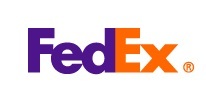
FedEx Express, a subsidiary of FedEx Corp. and the world’s largest express transportation company, announced that it has safely delivered 1.35 million Johnson & Johnson COVID-19 vaccine doses to Toluca, Mexico, in coordination with Direct Relief and the United States and Mexican governments.
Read More: Setting Records, Walmart Continues Moving Toward Becoming a Totally Renewable Business
“FedEx is fully committed to the distribution of these lifesaving vaccines where they are needed and delivering to Mexico is an important step in fighting the pandemic in communities we serve every day.”
The delivery marks the first shipment of vaccines for Direct Relief and FedEx and the first COVID-19 vaccine delivery by FedEx into Mexico. As an integral part of the global vaccine supply chain, FedEx is delivering COVID-19 vaccines, related ingredients, and supplies to 40 countries throughout the world. FedEx Express moved the vaccine shipment from Memphis, TN, to Toluca, Mexico, via FedEx International Freight® supported by FedEx Priority Alert® advanced monitoring.
“We are proud to play a role in delivering COVID-19 vaccines alongside our longtime charitable partner Direct Relief, and in collaboration with efforts led by governments of the United States and Mexico,” said Richard W. Smith, regional president of the Americas and executive vice president of global support for FedEx Express. “FedEx is fully committed to the distribution of these lifesaving vaccines where they are needed and delivering to Mexico is an important step in fighting the pandemic in communities we serve every day.”
FedEx has delivered more than 13,000 COVID-19-related charitable shipments since January 2020, and the company has committed $4 million in cash and in-kind transportation support to nonprofits serving communities in the U.S. and around the world including Direct Relief.
Read More: SalesTechStar Interview with Mark Magnacca, President and Co-founder at Allego
“It’s a privilege for Direct Relief to join FedEx and help execute this critical donation of COVID-19 vaccines from the government of the United States to the government of Mexico, and we are profoundly grateful for FedEx making it possible,” said Thomas Tighe, Direct Relief President and CEO. “This is the most recent example of the extraordinary charitable efforts FedEx has undertaken from the onset of COVID-19 through the darkest days we’ve seen – and the thousands of shipments containing millions of PPE units and other medical essentials the FedEx team has delivered to the hardest hit, most disadvantaged communities have protected millions of people at risk.”
“This vaccine shipment will have a direct and positive impact on the communities where our team members live and work to serve our customers in Mexico,” said Juan Cento, regional president of the FedEx Latin America and Caribbean (LAC) Division. “Over the last 17 months FedEx has moved more than 1,213 tonnes of personal protective equipment into Mexico as well as other goods critical to the fight against COVID-19. Delivering these vaccines will help reduce the spread of COVID-19, assist in the region’s recovery, and deliver much needed hope to Mexico.”
Since the pandemic began, FedEx has moved more than 90 kilotons of personal protective equipment (PPE) around the world. In addition to widespread delivery throughout the U.S. and Canada, FedEx is also delivering COVID-19 vaccines to U.S. service members at military bases overseas for the Defense Logistics Agency, and is working closely with the Canadian government and healthcare companies to ship COVID-19 vaccines to Canadians living abroad.
FedEx will continue to deliver lifesaving medicine, personal protective equipment, and other critical supplies until this pandemic is over. The movement of vaccines and relief is aligned with the FedEx Cares 50 by 50 goal to positively impact 50 million people around the world by the company’s 50th anniversary in 2023. Learn more about FedEx COVID-19 vaccine and relief delivery here.
Read More: Remote Work Doesn’t Mean The Risk Is Remote





















